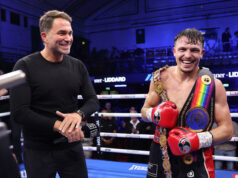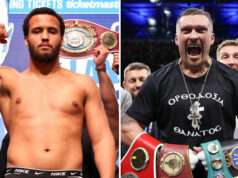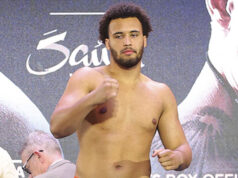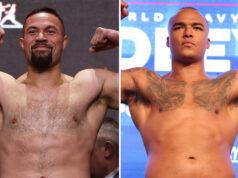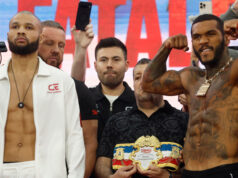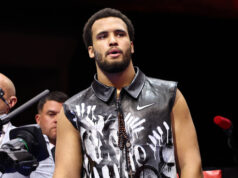Top Fighters of the 1970s: Chicago
A bit of a confession for the masses: Aside from Clubber Lang, it was extraordinarily difficult to compile a list of solid—if not known—professional boxers from the great city of Chicago. Now, of course, that’s not in any way to say that Chicago isn’t a great fighting town because, without a doubt, it is. Depending on which version of history you choose to believe, the town very well may be the birthplace of what boxing fans everywhere have come to know as the Golden Gloves tournament (let the raucous rebuttals ensue). Chicago is a great fight town filled with the struggles and battles of some of the best amateur boxing the country as ever seen.
Add to that the fact that Chicago was the site of many a great fight, and it’s impossible to have a review of great fighters of any decade without including the “Second City.” Consider all the amateur fighters of Chicago’s storied past to make up the unofficial five-slot on this list.
4. Ernie Terrell (46-9, 21 KOs), Heavyweight
Achievements: Former WBA heavyweight champion; Lost on points to Chuck Wepner (1973)
Why He’s On This List: Known more for the unique place in boxing lore he holds than what he accomplished in the last four years of his career, Terrell was a highly-regarded heavyweight throughout his career. A Chicago native, Terrell captured the vacated WBA heavyweight title in 1965 (the commission stripped Muhammad Ali) with a victory over Eddie Machen via unanimous decision. Terrell held the title for two years before Ali finally got retribution and pummeled his way back to the title. Looking to get back to prominence, Terrell struggled to close the decade, before rebounding in the early ‘70s. Unfortunately, Terrell was unable to rise back to the level of prominence before retiring in 1973.
3. Alfonso Ratliff (25-9, 18 KOs), Heavyweight
Achievements: Highly touted Chicago amateur fighter in the 1970s; 1980 Chicago Golden Gloves champion
Why He’s On This List: Alfonso Ratliff was one of the most promising young fighters to come from Chicago in quite some time when he rose through the amateur ranks in the 1970s. As an up-and-coming cruiserweight and heavyweight, Ratliff captured the city’s Golden Gloves title at the turn of the decade, a year after winning the Chicago Park District Heavyweight title. Later in 1980, Ratliff finalized his amateur resume by winning the Intercity Golden Gloves tournament title, as well. Heading into the 1980s, Ratliff seemed poised to bring the focus of the boxing world back to the “Windy City.” Within six years, Ratliff would make the transition to heavyweight and fall victim to another young, up-and-comer: Mike Tyson.
2. “Solid Gold” LeeRoy Murphy (30-4, 23 KOs), Heavyweight
Achievements: 1979 Light Heavyweight National Golden Gloves champion; 1980 U.S. Olympian
Why He’s On This List: Murphy established a phenomenal position as an amateur fighter out of Chicago before eventually turning pro in 1980. Carrying a record of 157-17 into the latter part of the decade, Murphy was known for being a quick, big punching Light Heavyweight who was destined to move up and fight on the big stage before too long. In ’79, Murphy won the National Golden Gloves title in the Light Heavyweight division before qualifying for the 1980 summer Olympic team. Unfortunately for “Solid Gold,” the U.S. boycotted the 1980 games in Moscow and he was unable to compete at the highest level on the international stage. He would have to settle for stateside success in the ‘80s in the Cruiserweight division.
1. Johnny Lira “The World Class Pug” (29-6, 15 KOs), Lightweight
Achievements: Finished the ‘70s with a record of 16-1-1; Won USBA lightweight title
Why He’s On This List: “The World Class Pug” came up through the vicious Chicago amateur ranks fighting as both a Welterweight and Middleweight, before making his name as a pro in the Lightweight division. Lira started his professional career with a flourish, utilizing his power and impressive chin to fashion an early reputation as something of a knockout artist. Going undefeated in his first eighteen bouts as a pro, and capturing the USABA lightweight title in the process, Lira enjoyed an impressive ten knockouts in that timeframe. In his first foray onto the national stage, Lira wound up on the business-end of a TKO loss to then-WBA World Lightweight champion Ernesto Espana in August of 1979. It would prove to be Lira’s first, and last, shot at the strap despite fighting for another five years.


